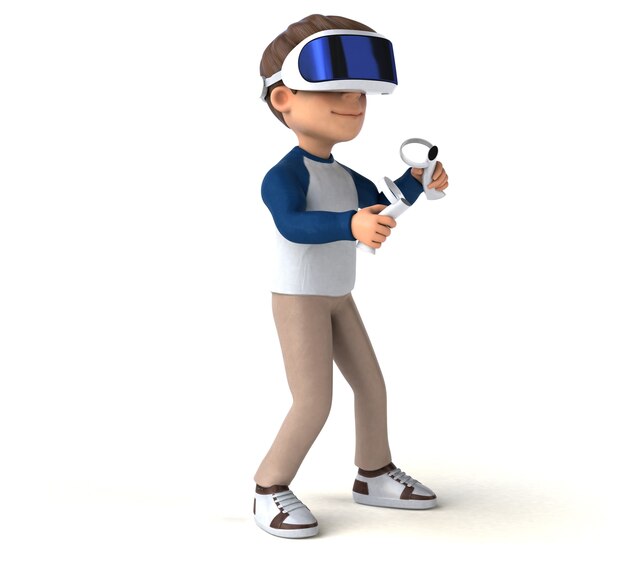
Education Technology: Bridging the Digital Divide in Learning
In the rapidly evolving landscape of education, technology has become a driving force, revolutionizing the way students learn and educators teach. From online learning platforms to innovative edutech startups, the intersection of technology and education has created unprecedented opportunities for learners worldwide. This article explores the transformative impact of education technology (edtech) on the education sector, delving into online learning platforms, the rise of edutech startups, and the potential future directions of education.
Online Learning Platforms:
Online learning platforms have emerged as a cornerstone of education technology, providing flexible and accessible avenues for individuals to acquire knowledge and skills. The advent of Massive Open Online Courses (MOOCs) has democratized education by offering courses from prestigious universities and institutions to a global audience. Platforms like Coursera, edX, and Udacity have become virtual classrooms, allowing learners to engage with course materials, participate in discussions, and complete assignments at their own pace. One of the key advantages of online learning platforms is their ability to cater to diverse learning styles and preferences. Learners can choose from a wide array of courses, spanning various subjects and levels of complexity, tailored to their specific needs. The flexibility of asynchronous learning allows individuals to balance education with other commitments, making it an ideal option for working professionals and non-traditional students. Furthermore, online platforms often leverage multimedia elements, interactive quizzes, and peer-reviewed assessments to enhance the learning experience. This multimedia approach caters to visual and auditory learners, promoting a deeper understanding of concepts. Additionally, the gamification of learning through badges and certificates adds a layer of motivation, encouraging learners to complete courses and showcase their achievements.
Edutech Startups:
The rise of edutech startups has added dynamism to the education sector, introducing innovative solutions to address various challenges in traditional education models. These startups leverage technology to enhance pedagogy, streamline administrative processes, and provide personalized learning experiences. Adaptive learning platforms, such as Khan Academy and DreamBox, use algorithms to assess a student’s proficiency level and dynamically adjust the difficulty of content accordingly. This personalized approach ensures that each student receives targeted support, fostering a deeper understanding of subjects and allowing learners to progress at their own pace. Furthermore, collaborative tools like Google Workspace for Education and Microsoft Teams have transformed the way students and educators interact. These platforms facilitate real-time collaboration, enabling students to work together on projects, share resources, and communicate seamlessly. The integration of such tools has become essential, especially in the context of remote and hybrid learning environments. In addition to academic tools, edutech startups are addressing the broader aspects of education, including administrative processes and career readiness. Platforms like Clever streamline school data management, while career-focused platforms like Handshake connect students with job opportunities and internships, bridging the gap between education and the workforce.
The Future of Education:
Looking ahead, the future of education is poised to witness continued integration of technology, fostering a more inclusive, interactive, and adaptive learning environment. Here are some key trends that may shape the future of education: Augmented and virtual reality technologies have the potential to revolutionize the way students engage with educational content. Immersive experiences can transport learners to historical events, simulated laboratories, or interactive virtual environments, enhancing their understanding of complex concepts. Artificial Intelligence (AI) is expected to play a significant role in providing personalized learning experiences. AI algorithms can analyze students’ performance data to identify strengths and weaknesses, allowing educators to tailor their instruction to individual needs. Chatbots and virtual assistants may also assist students in navigating coursework and finding resources. Blockchain technology may streamline the credentialing process, providing a secure and transparent way to verify academic achievements. This can reduce the prevalence of fraudulent credentials and make it easier for employers to verify the qualifications of potential hires. The digital era enables global collaboration among students and educators. Virtual exchange programs and collaborative projects can connect learners from different parts of the world, promoting cultural understanding and diverse perspectives.
The intersection of technology and education has ushered in a new era of possibilities, breaking down traditional barriers and expanding access to quality learning experiences. Online learning platforms and edutech startups have transformed education into a dynamic, personalized, and collaborative endeavor. As we look towards the future, the continued integration of emerging technologies promises to further revolutionize education, creating an environment that is adaptable, inclusive, and equipped to meet the evolving needs of learners in the digital age. Embracing these innovations is essential for educators, institutions, and policymakers as they navigate the ever-changing landscape of education technology.
© IPROVILLE TEAM



